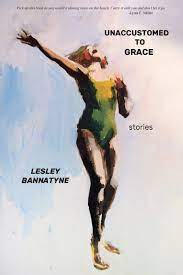You have lived in Somerville for many years. Is Somerville a good match for the writer's life?
I first came to Somerville as part of the initial group of artists that moved into the Brickbottom Artists building back in 1987 and have always thought this city bolstered the arts in unique ways. The fact that Somerville has a permanent Arts Council makes a huge difference, in that they continue to innovate in support of all the city’s creative arts. But Somerville’s also a dense and fascinating city, and that, I think, adds a lot to a writer’s life. I was a Boston Globe correspondent for several years, and I always said I could find a story simply standing on my front steps and looking around. I wrote on the community of Nepalese who put down roots here several decades ago. I wrote about neighbors who take down their chain link to open up adjacent backyards; about the house with so many Christmas lights you could see if from space; about the artists who animated metallic shavings, played ukulele noir, or re-invented smell-o-vision. All this makes Somerville a rich place, inspiration-wise, for both journalism and fiction.
You are known as an expert on Halloween and have written extensively on the subject. It seems that the stories in your book have a certain sense of horror, as well as irony. Do you believe that your years of writing about Halloween have influenced your fiction writing?
I have many friends who are horror writers, but I am not. I tried once; it’s not in me. My stories deal sometimes in magical realism, and they can sometimes deal with dark subjects, but I’ve never thought of them as horror, or even horror-filled. The story that opens Unaccustomed to Grace, “Corpse Walks Into a Bar," is inspired, not by anything terribly ghoulish, but by a several-hundred-years-old comedic Irish Ballad, “The Flitting of the Corpse and Tomas McGahon.” In the ballad, Tomas lugs a corpse from graveyard to graveyard trying to find a home for him. When it was sung, the ballad likely had to do with immigration to Ireland - who are your people and where do you belong - but I used the bones of the idea to look at what we carry and how and when we can put those burdens down. In the case of “Corpse,” it’s guilt that Tomas carries. The corpse is a walking and talking metaphor.
When people think of Halloween, they often think of all things spooky, and that’s definitely a big part of it. But after researching the holiday for so many years it’s clear to me that Halloween is as much about transformation and magic as it is about anything dark (ask anyone who’s been asked to make a princess/cat/marshmallow costume for a seven year old at the last minute). Dark things happen all the time. Halloween is when we can open our arms to the darkness and shine a little light on it.
In this sense, the idea of transformation and magic are definitely influences on my stories. In “Waiting for Ivy” a woman grieving the loss of her infant daughter discovers a listserv of parents whose dead children have been returned, as if the tragedy were a clerical error. The construct is magical, but the story is about a young mother opening her heart to the possibility of having another child. Many of the stories in Grace, though, are realistic, and any magic that emerges comes through the perception of the character: a phosphorescence on the water, the thrill of driving away from your hometown for the first time; blue light in deep snow that convinces you to put down roots.
You have had a long career as a freelance journalist. I noticed you had a piece on druids in Massachusetts. Can you tell us a bit about this, and are there any in Somerville?
I wrote a profile of a local Somerville druid for the Boston Globe in 2004; he was a solitary practitioner training through an online program in Druidry (like Masons, there are stages of learning involved). I’ve also written about a Buddhist temple in East Boston, full-moon labyrinth walkers in Somerville’s Growing Center, and the annual “Passion of the Christ” that used to work its way through the streets of East Somerville. Spirituality has always interested me, and it’s a critical part of several of my characters—their desire to be part of a reality bigger than them; a yearning for connection, for something that floats them, if only for a moment.
I read a compelling story in your new collection that concerns an elderly grandmother who plans to extract revenge from a kid who killed her beloved grandson. As the story progresses--she slowly changes her mind. In the end she views the murderer as more of a person than a concept. Could this kind of 'redemption' be applied to other characters in this book?
Absolutely. The stories in Unaccustomed to Grace are united through those moments when a character experiences a moment of grace, when they’re at their most unexpectedly bright, most fully realized self, and it changes everything. It could come at a red light, in a karaoke bar in Russia, in Watertown the night the marathon bomber was caught, or just before dawn in a Dorchester graveyard.
Why should we read this book?
What I especially love about short fiction is that the author can build an entire world in just a few pages. I heard one author describe the short story as a world built in a snow globe. Another said it was like being in an elevator where you can stop on every floor and take things to use, but you can’t use the whole city outside—that’s a novel. There are thirteen different worlds in this book - I’m hopeful readers will find something in Grace that resonates with them.





































No comments:
Post a Comment